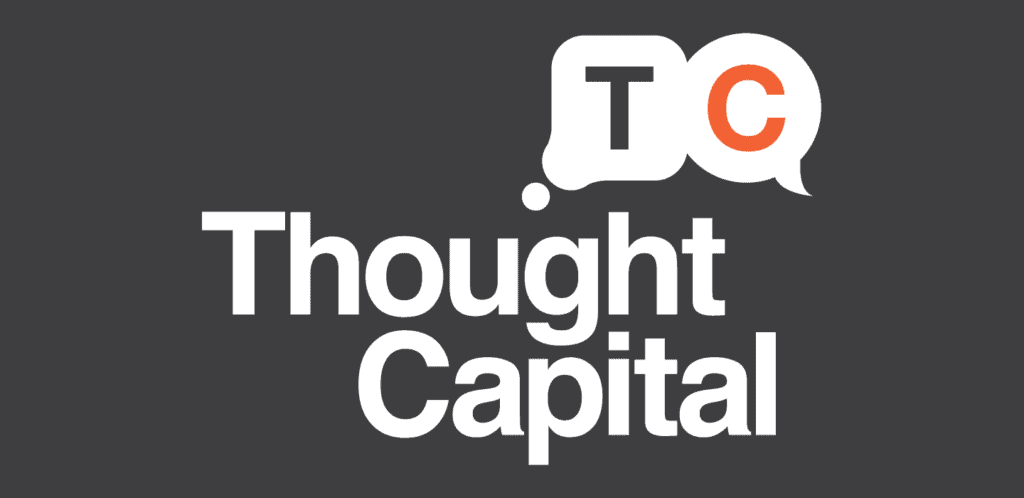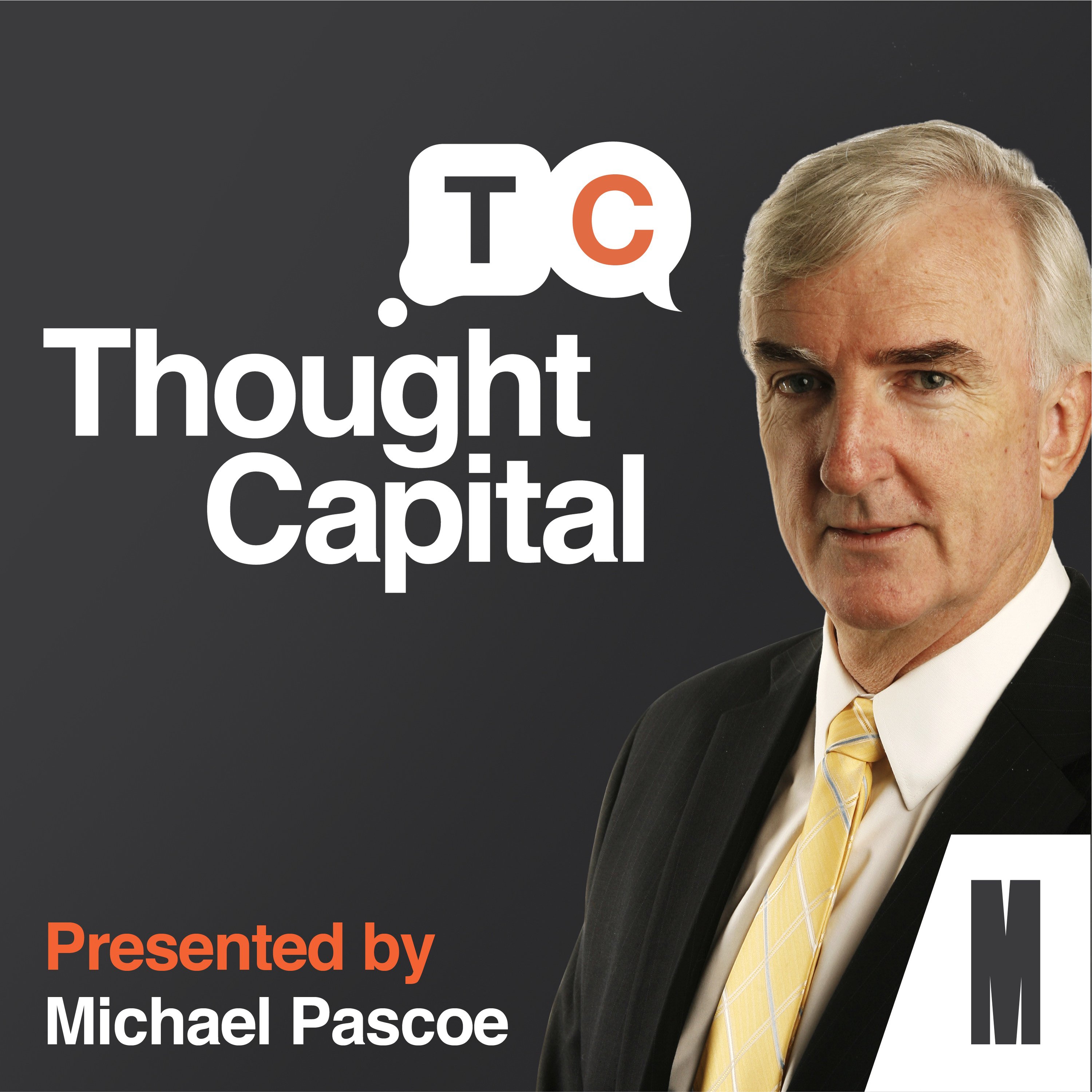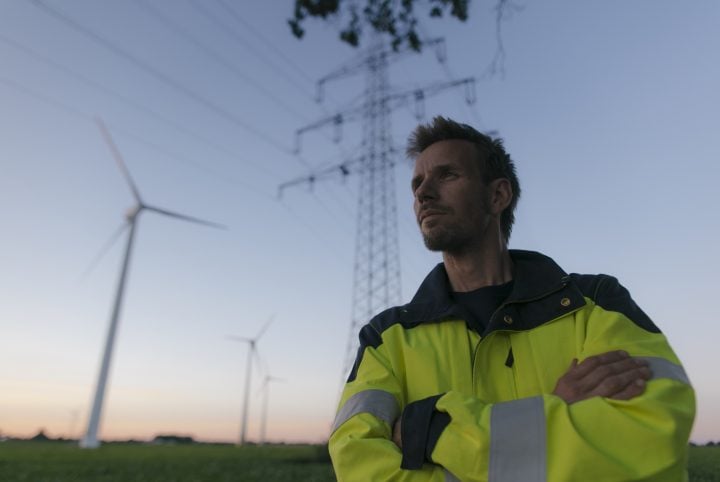Michael Pascoe: Welcome to Thought Capital, the podcast that delves into the wealth of ideas created by the experts at Monash Business School in Melbourne, Australia.
Ingrid Landau: There’s about 15,000 people living in slavery conditions in Australia on any given day. There’s high risk of slavery in electronics, construction, seafood, agriculture, and domestic work.
Michael Pascoe: Slavery, it brings to mind images of African people being shipping in chains to America 200 years ago, but slavery has never stopped. It may be more hidden, we may not be able to see it on our doorstep, yet we may be contributing to it through the products we buy and the companies we support. Ingrid Landau, Lecturer in the Department of Business Law and Taxation at Monash Business School, specialises in modern slavery and labour law. Welcome Ingrid.
Ingrid Landau: Thank you.
Michael Pascoe: What defines modern slavery?
Ingrid Landau: Today the forms of slavery are very different. So slavery is very much about extremely exploitative working conditions often. It’s about workers being not able to leave their work, not being free, and being subject to threats; whether its violet threats, coercion, indebtedness, or so on.
Michael Pascoe: The International Labor Organization and Walk Free Foundation claim there are more than 40 million slaves in the world in 2016, seventy percent of them women. Does that gel with your research?
Ingrid Landau: Yes, definitely. Those are the most authority figures we have, the International Labor Organization. What’s important to recognise as well is that the majority of those in modern slavery today are actually in our own region. In the Asia Pacific. And the majority of slaves are also engaged in forced labour and indebted labour.
Michael Pascoe: Is there a fine line between a subsistence existence and actual slavery?
Ingrid Landau: It’s a spectrum I guess, and there is certainly a fine line between exploitative working conditions and slavery. Most people don’t realise that modern slavery is not a legal term. It’s a term that has been developed over the last couple of decades to refer to a particular set of very exploitative conditions. You cannot be prosecuted for modern slavery. Under our new Modern Slavery Act for example it’s defined as ‘certain offences under the criminal code.’ So they include human trafficking, forced labour, bonded labour, and slavery.
Michael Pascoe: So we know about it, it’s huge. Why is it so hard to fight?
Ingrid Landau: For a number of reasons. Firstly, it’s hard to detect because the nature of the crime is that it tends to be hidden away, and it tends to involve very vulnerable individuals and victims. More importantly, and perhaps less comfortably it’s embedded in our global economy and our global production systems. As a colleague who specialises in working with companies around the world likes to say, it’s ‘baked into’ our production. So in that sense that’s why it is very hard to fight without having the full cooperation I guess, and engagement, of not just governments, but businesses, and consumers, and civil society.
Michael Pascoe: You say modern slavery is predominantly in our part of the world, our region. What countries, and what industries?
Ingrid Landau: Developing countries, but also in countries where migrants tend to move for work. So we know for example that Malaysia, Thailand have particular problems with forced labour and slavery. It is found particularly in industries where there is lots of workers who are paid very poorly. Electronics, seafood, in agriculture, in construction, in domestic work: all industries with a very high prevalence of slavery.
Michael Pascoe: And Australia? We’re not immune?
Ingrid Landau: No, we’re not immune. It is less common in Australia, but the Walk Free Foundation’s estimated that there’s about 15,000 people living in slavery conditions in Australia on any given day. Again, these cases tend to exist in sectors where there are lots of very vulnerable workers and poor working conditions. So again, agriculture, construction, meat processing, domestic work, cleaning, hospitality, and food services.
Michael Pascoe: I suppose my impression that where slavery in Australia existed you’d think first of all, of sex trafficking, you’d think of the odd feudal diplomat bringing household staff with them.
Ingrid Landau: Yes.
Michael Pascoe: Yes some restaurants, extended family members, but you’re saying it’s broader than that. It’s in agriculture.
Ingrid Landau: Yes it is, and I think it tends to be … you tend to find extremely exploitative working conditions and cases of forced labour in industries which tend to rely on a lot of migrant workers.
Michael Pascoe: The general impression of slavery in Australia is perhaps sex trafficking, and the odd feudal diplomat bringing household staff, but the problem is much more widespread than that. Heather Moore is the Managing Director of the Trafficking and Slavery Research group at Monash University. She’s with us from Canberra.
Heather Moore: There’s no clear answer to that question of who is the modern slave because it can be the garment factory worker in Bangladesh. It can be the child labourer in conflict mineral zones in the Democratic Republic of Congo. It can be a Burmese worker in the Thai fishing industry, but it can also be someone taking care of a child in a park, who’s been brought here as a domestic worker. It is a pervasive problem, it can be anywhere. That’s not to say we should all be paranoid and fearful of this, but I think we need to start seeing more community engagement in the issues, similar to the way we started broad community dialogs around gambling, around domestic violence, around violence against women. The Australian problem is maybe not as big as it is in other parts of the world, but it’s much larger than is currently recognised.
Michael Pascoe: Ingrid Landau, is there a line of difference there between slavery in Australia with extremely exploitative, but someone could walk off the farm and not be captured, whereas in the region it’s harsher again?
Ingrid Landau: I certainly think there are cases. For example, one of the cases that has been successfully prosecuted in Australia involved two Taiwanese nationals who had basically brought other Taiwanese nationals to Australia, and had them in houses operating call centres in Brisbane. There was 49 of them in two houses that basically worked around the clock, they didn’t get paid, they weren’t free to leave, and the Australian Federal Police only discovered it because one of the workers did eventually manage to escape. So that kind of actually physically confined workers does happen in Australia, and I think it’s important to recognise that. But there are many types of situations that fall under our understanding of modern slavery which may not necessarily involve workers not being able to leave a physical location.
Ingrid Landau: So for example, bonded labour, which is where workers borrow money, and then they find that they are unable to pay that money back and they have to work to pay off the debt. In doing so they render themselves incredibly vulnerable. Bonded labour, and that’s actually the most common and widespread form of forced labour worldwide, and certainly we would find that kind of exploitation in Australia as well. Undocumented workers in Australia obviously are very vulnerable to exploitation because they know that they cannot easily leave and find another job within Australia.
Michael Pascoe: How broad is the impact of slavery?
Ingrid Landau: It’s broad enough that most of the goods that we purchase will have modern slavery somewhere in their production. We purchase most of our electronic goods in Australia, mobile phones, laptop computers, are produced in Malaysia and China, and these are countries with very high risk of forced labour in the factories. One study for example in 2014 which went and interviewed workers in Malaysian electronic factory estimated that over a quarter of these workers were in situations of forced labour. So they’d been recruited using deceptive means, they had their ID Documents, their passports destroyed or withheld, and they didn’t basically have any freedom to leave their jobs whatsoever. Most of our seafood that we purchase in the supermarkets is produced in Southeast Asia, and we know there is a very high risk of modern slavery in the fishing industry in those countries.
Michael Pascoe: And the impact of slavery ripples out. Black market garden has an unfair advantage over a competitor who actually pays the legal wage. It also weakens the society, the regions where it happens.
Ingrid Landau: Yes, definitely. Slavery obviously has very negative consequences for victims, for society. It contributes to I guess more inequalities, more vulnerable populations, it has negative implications for businesses. Like you said, businesses who do the right thing. I think that was one of the drivers of the Modern Slavery Act last year was particularly larger business who are already taking steps to understand the risks of slavery, and other human rights violations in their operations supply chains, and taking steps and investing resources to try and address these. That they felt that they wanted a more level playing field, and the Modern Slavery Act was one way to encourage all business of a certain size to start doing this to.
Michael Pascoe: Heather Moore from the Trafficking and Slavery Research group at Monash University, this may seem like an outrageous question, but is slavery bad for business?
Heather Moore: Slavery is bad for business because it poses particularly dire reputational risks to businesses, and no one wants to be called out in the headlines having slavery found in their supply chain, but we’re also seeing divestment and less access to capitol [inaudible 00:10:50] that continue to engage in unethical practices. There’s a lot more investor pressure coming down onto big multinationals to clean up their practices and ensure sustainable supply chains. Not just in terms of modern slavery, but certainly across a range of other sustainability issues including waste disposal, environmental impacts, and whatnot, and broader human rights concerns.
Michael Pascoe: You’re listening to Thought Capital from Monash Business School. I’m Michael Pascoe talking to Ingrid Landau. We’ve got a new law, the Modern Slavery Act. What does it do? Does the book get thrown at people?
Ingrid Landau: The Modern Slavery Act is an additional measure upon our existing criminal law, criminal code provisions on slavery and forced labour. And the Modern Slavery Act does not impose any kind of civil liability on individuals or organisations. The Modern Slavery Act 2018 is about requiring companies, businesses, to start thinking about the risks of modern slavery in their operations and supply chains, and taking steps to address these risks.
Michael Pascoe: So the Modern Slavery Act is more aimed at what’s happening overseas than what is happening in Australia, or both?
Ingrid Landau: It is both, and I think that’s a common misconception because people think, well modern slavery tends to be overseas, so companies when they’re looking for possible modern slavery in their supply chains and operations, if my operations only exist within Australia than I don’t really have to have any risks. We have seen many cases, particularly for example, in agriculture and hospitality, where just because you do not have any international connections with your business does not mean that you may not have modern slavery somewhere in your supply chains.
Michael Pascoe: For example?
Ingrid Landau: In agriculture for example there was another case where it concerned a market garden property in Western Australia. It was discovered that the workers entered Australia lawfully, but then they’d overstayed their visas, and they were subject to working conditions which had multiple indicators of forced labour. So they were housed all together in substandard accommodation, they had deduction for rent unlawfully taken from their wages, they were paid below the minimum wage. That kind of entity, the market garden, obviously could be supplying many other businesses within Australia that we regularly frequent. Restaurants, supermarkets, fruit and vegetable stores we might not think would have any connections with slavery or forced labour.
Michael Pascoe: Why is it so hard to prosecute?
Ingrid Landau: The nature of business models today is that they’re heavily reliant on supply chain, so multiple levels of contracting. And we know that generally the longer the supply chains, the more opaque they become, and the further they generally extend into … they extend to vulnerable workers whether that’s within Australia or internationally. Increasingly companies rely not only on multiple tiers of contracting, but they rely on third party labour recruiters, or third party arrangements, so they’re not directly employing, engaging workers. And we know that having those kinds of intermediaries heightens the risk of exploitation of workers.
Michael Pascoe: How far is a company meant to go in researching its’ supply chain? If I’m putting a computer chip inside of a gizmo, inside another gizmo, it’s pretty hard to get right to the bottom isn’t it?
Ingrid Landau: For example if you take an Apple iPhone it’s … this iPhone is manufactured by Foxconn which is a Taiwanese company, but its’ factories are in China. It’s got 78 different kinds of supply chains linked into bits of that iPhone. Even for Apple what is a reasonable expectation of the company? The answer is, that it’s still evolving. And what the Modern Slavery Act basically does is require companies to report on their entities, and their supply chains. What risks there are, and what measures they’re taking to address those risks. And so it basically recognises that for some companies there will be a start, they might not have thought about this before, but they need to start now. Perhaps with their first tier of their supply chain, and understanding the risks there. And then progressively the expectation is that businesses will continuously improve their understanding of their risks and what they’re doing to address those risks.
Michael Pascoe: What are the consequences for a company that doesn’t?
Ingrid Landau: Well I guess the biggest consequence for companies in Australia is that they will be basically sanctioned by the market, and by consumers.
Michael Pascoe: That sounds awfully … that sounds like soft touch regulation as the Banking Royal Commission hit upon.
Ingrid Landau: The question of civil penalties was a very fiercely contested issue during the drafting of the bill and its pasture through the Parliament. Under the current Act there is no civil penalty for businesses that do not issue a modern slavery statement every year, but the Minister can write to non-complying companies and ask them to explain why they’re not in compliance. And if the company then fails to comply, or to respond to that request, the Minister may publish information on the non-complying company. So basically there is a potential from the Minister to name and shame companies that don’t comply. The only other upside to this is that in the Act there’s a provision which says that the Act will be subject to review after three years. So by then we’d know that companies aren’t taking this reporting obligation seriously. That will be another opportunity for civil penalties to be introduced.
Michael Pascoe: The top five products at risk for modern slavery reportedly are; laptops, mobile phones, clothes, fish, cocoa, and sugar cane. Can I buy anything without supporting modern slavery?
Ingrid Landau: It’s very difficult to do so unfortunately. There are of course ways in which consumers can buy goods that report to be slavery free, and I am skeptical of such claims. If consumers want to obviously improve the situation, there are ways that they can consume less perhaps, and be willing to pay more for certain goods, but I think there’s also a limit to what consumers can carry.
Michael Pascoe: Heather Moore again.
Heather Moore: Consumer demand for cheap goods and services is a contributing factor to business behaviour. And we see that particularly in the garment industry where high demand for a certain style of clothing ends up putting enormous pressure down the supply chain for really quick turn arounds. Really the next frontier is looking at how do we engage consumers in educating them about their role in contributing to, and solving issues like modern slavery.
Michael Pascoe: Ingrid Landau, as a consumer, what can you do?
Ingrid Landau: Next year, if you are very interested you will be able to access the Modern Slavery statements of companies that are required to report so you can try and understand what the company is doing. Hopefully we will also see, as you have seen in the UK, that civil society will do a lot of the analysing, compiling, analysing, and benchmarking different companies against each other, and that will make it easier for consumers. So we always already have for example, Baptist States Fashion Report that comes out each year, which rates fashion companies in Australia with anything from and A to an F. So they’ve done a lot of leg work for the consumers, and consumers can quite easily, consulting one source, work out what are the leading companies that are doing good work, and what are the laggards I guess.
Michael Pascoe: Let’s be theoretical. The Senate suddenly becomes very concerned about modern slavery. They ask you to come in, Ingrid Landau. What are you going to tell them they need to do?
Ingrid Landau: There are things that we can do to improve the Modern Slavery Act. Things like civil penalties, so companies take the obligations more seriously. Some kind of independent statutory body, a Commissioner for example, that is tasked with actually guiding and overseeing corporate compliance. So for example we have a new South Wales Modern Slavery Act which came in over the last year or two, and they have a new South Wales Slavery Commissioner. We do not have that under our federal act. Government procurement I think is also a very important issue. The governments can lead by example, given that they have their own very large operations and supply chains, and that would be a good and feasible place to start. I’d also like to see greater kind of regulatory movement towards requiring companies to consider their adverse impacts on all human rights, not just modern slavery.
Michael Pascoe: What has been the corporate response to the Modern Slavery Act?
Ingrid Landau: The corporate response has generally been very positive. So as you can imagine civil society really lobbied hard for the act, and a very significant part of the business community was also supportive of having a modern slavery reporting requirement modelled on the UK act. Many companies genuinely believed that it’s good for business. The question for us is to be watching very closely whether the Modern Slavery Act, as it has been passed, is it being taken seriously by businesses and what is its’ impact. If we can’t see any impact on those people who are supposed to benefit from the initiative, those workers and very vulnerable individuals that would, over the coming years, only strengthen the case for stronger and more comprehensive regulation of business in this area.
Michael Pascoe: Thank you Ingrid Landau from the Department of Business, Law and Taxation and to Heather Moore from the Trafficking and slavery research group at Monash.
Michael Pascoe: You’ve been listening to Thought Capital from Monash Business School. You can find more episodes on iTunes, Spotify, and Stitcher, or wherever you listen to Podcasts. This episode was produced by Tina Zenou. Editor is Nadia Hume. Sound production by Richard Edlin. Executive producer is Helen Westerman. Thought Capital is recorded at the Monash School of Media, Film, and Journalism.




